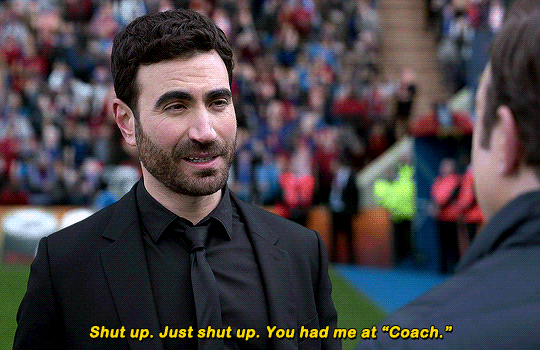"Dance"
Original Airdate: April 29, 2014
When I was a kid in middle school, we had a lot of school dances. I grew up in a small town in Pennsylvania, so there was a dance – if I recall correctly – every month. I mean, we were in a small school in a small town, so what else were we going to do on a Friday night when we couldn’t drive, right? I always had fun at these dances. I remember the gymnasium being dark and packed with students. I recall wandering around the perimeter, clutching at a good friend’s elbow so I wouldn’t lose her in the crowd. I clearly remember “Baby Got Back” being played at one of these dances. I never dated in middle school so I never had a boy to dance with during the slow songs but that was okay because none of my friends did either. High school dances were essentially the same routine but a lot less awkward than the middle school ones. Still, when I think of school dances, I think about them fondly because they were some of the more fun times that took place during those awkward 6th to 8th grade years.
This season’s penultimate New Girl episode is aptly titled “Dance” and focuses on Jess’ desire as vice-principal to make the Coolidge Middle School dance a wild success for her students. She’s pouring everything she has into this dance which is not unlike Jess, if we’re being honest. But everyone else knows WHY she’s so focused on making sure that this dance is extra perfect. She’s trying to force the perfection she didn’t have in her relationship with Nick into a project. I really love when in television shows, the characters confront a single character about an issue or their behavior because they know the reasoning for their particular actions. In “Dance,” everyone supports Jess and helps her chaperone, but they know the reason why she’s going overboard with the project. And at the end of the episode, she finally admits to herself (and to Cece) that she’s disappointed and frustrated with how her relationship ended so she’s trying to control something in order to distract her and give her a sense of power amidst feelings of powerlessness. It’s a beautiful resolution on Jess’ part, really, and I’m glad that Cece was there to witness it. Elsewhere in the episode, Coach has instructed everyone to assist in chaperoning the dance and things go awry. Shenanigans are had, people are injured, and there’s some rapping involved.
All in all, I thought that “Dance” was a perfect penultimate New Girl episode (major props to Rebecca Addelman and Ryan Koh who wrote the episode – your powers combined led to a hilarious, shenanigan-filled episode and I loved it), so let’s discuss it more beneath the cut, shall we?





.jpg)

.jpg)



